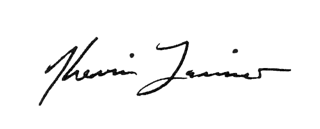The Strength of Our Lines
When I was ten years old I learned a hard lesson about trust—and the value of hard work and the power of humility, but mostly trust—that has endured over the years, solidifying into a kind of fence post in the center of my mind that I’ve held on to during turbulent times. On a raw, gray winter afternoon, on the farm in Wisconsin where I grew up, I had been working with my brother, four years my senior, at the woodpile out back. We’d kick at the frozen logs, load the wood into a wagon, then unload it into our basement, via a homemade chute constructed of two-by-fours and sheet metal, where it would be used as fuel for our furnace. I could write a chapter about that chore: the frozen fingers, the rising tensions between my brother and me, the exhaustion. Afterward I ran down the basement stairs in full winter gear and, relieved at having finished for the day, jumped to perform a celebratory pull-up on the clothesline where we hung our parkas, hats, and gloves to dry. I felt my cold chin on the line before it snapped, my legs, propelled by momentum, rose parallel to the floor, and I landed on my back on the bare concrete. The successful pull-up may have been fantasy, but the white light I saw upon impact was real. So was my brother, kneeling beside me—let’s say he cradled my head; give me that, for this is how I knew he loved me—asking if I were okay. I sat up, humiliated, and got on with being ten years old. Why is this memory imbued with such import, and what is the value of putting it into words? Why had I trusted a sagging clothesline to hold me?
As writers we put a lot of faith in words. We hang words on a line that we hope will hold up. In her essay “Thinning the Line: On Multilingual Literature, Cultural Memory, and Writing as Translation,” Crystal Hana Kim writes about her decision to use Hangul in her new novel, referring to one such line of Korean text acting “as dialogue, as spirit channeling, as hope.” In his essay “In This Time of War: The Muses Refuse Silence,” Philip Metres articulates his own position as a writer during the Israeli-Palestinian conflict. “It’s hard to be human right now, knowing what humans can do,” he writes. “And it’s hard to be a poet, knowing what words cannot do.” Poets know the power of white space, of silence, of absence and its resonance. Poets also know that silence is only as powerful as the words and actions we place alongside it. Some lines snap if they are asked to hold too much. Some groan with the strength of a mooring line. Others sing, and sometimes they cry, under so much tension.







